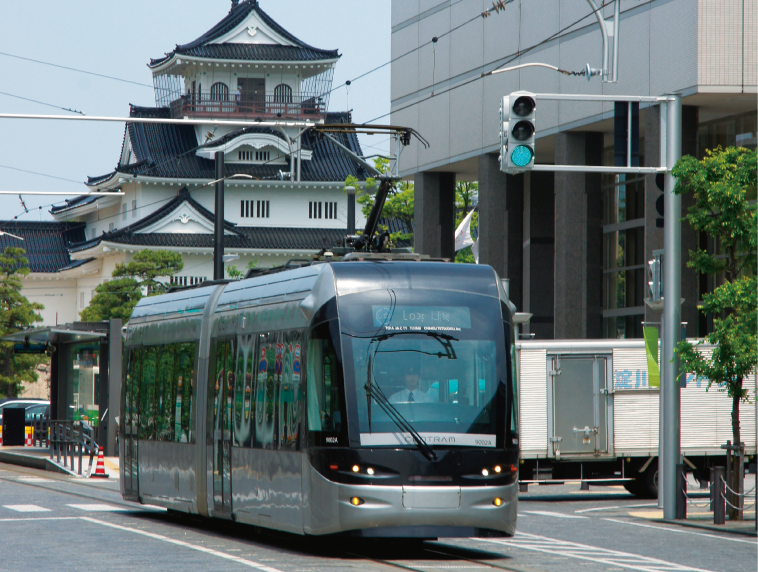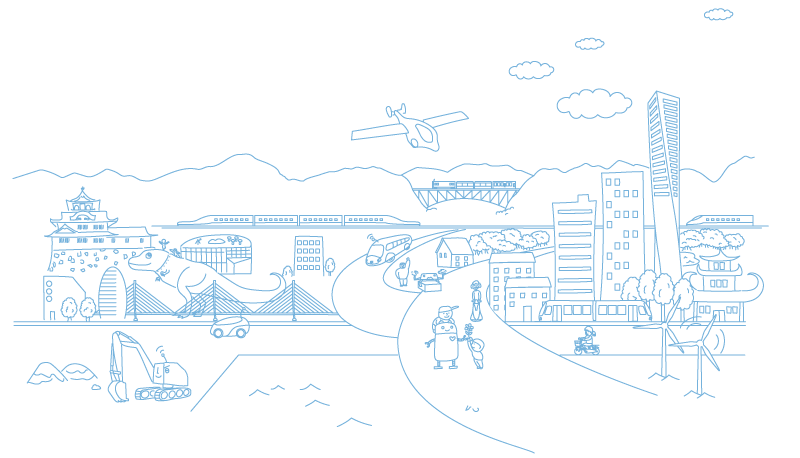
Toyama is a leader in urban policies in Japan. Here, we explore the development of sustainable urban environment and public transportation.
From Toyama, we want to introduce a more flexible and resilient approach to city planning to the World!
“Everyone can be a creator”. This is the thought behind the cities of the future.

To develop a sustainable city, it is necessary to implement hardware and software systems following cutting-edge disaster prevention measures and create adequate infrastructures that constitute the core of the city. At the same time, it is important to make good use of local resources to support and revitalize local communities and rural areas.
We think that cities and transportation systems are human activities and we have designed a program to foster young talents able to contribute to the development of a sustainable city. Our innovative curriculum encourages creativity and strategic thinking while providing an education that encompasses a combination of natural science, engineering technology, and social science.
At our department, according to the international-level educational programs accredited by the Japan Accreditation Board for Engineering Education (JABEE), from the first year, we offer a cross-disciplinary education which links and integrates various subjects, including engineering, science, arts and cultural studies. This kind of education is not limited to theoretical studies, but it includes more concrete practices such as field trips in the area of Toyama, widely known for its compact city policy centered on the public transportation systems.